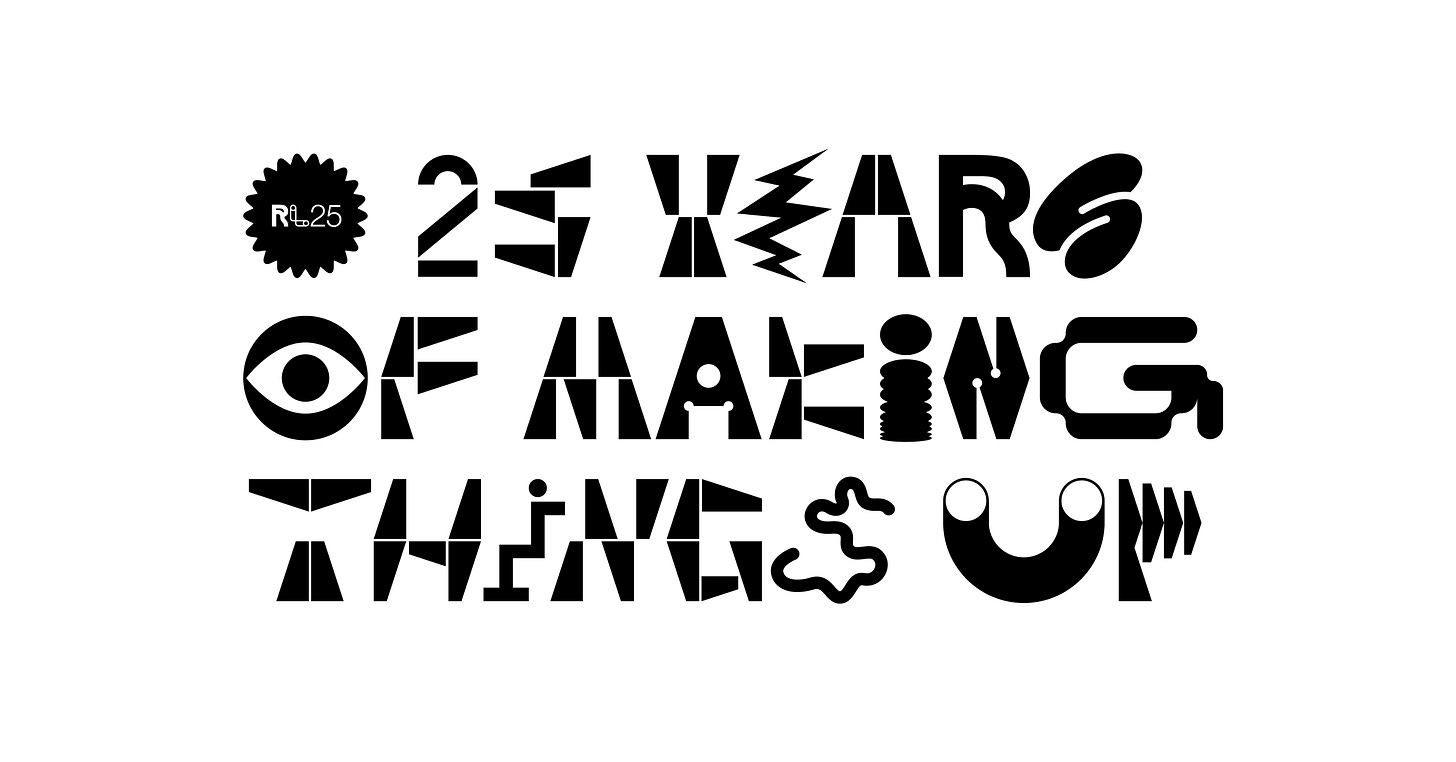Introduction
🎉 This is our 100th Unorthodox Blend article 🎉
When we started UB, the idea was simple: build a platform that blends perspectives, celebrates creative complexity and embraces the messy edges of culture and work. Two years later, we’ve shared interviews, bookspiration posts and reflections from the frontlines of running a creative business - and I’ve certainly learned a lot by putting words to the thoughts that have been bouncing around in my head for years.
For this one, I want to talk about something I’ve put a lot of thought into over the years: the relationship between objectivity and subjectivity. We live in a world that prizes logic, data and proof - where business decisions are made by spreadsheets, and success is often measured by things that can be neatly quantified. But at the same time, we’re navigating a cultural and political landscape where truth feels increasingly slippery and where subjective experiences, personal stories and emotional resonance are more vital than ever.
It’s a tension I feel often - especially with a background in maths, and with my work existing at the intersection of creativity and strategy, where logic and feeling need to coexist. And with the rise of generative AI and algorithmic decision-making, I believe this question is only going to become more important: what makes us human in a world increasingly shaped by machines?
A Rational World in a Post-Truth Era
We’re educated to believe in logic, to back up our arguments with data, to prioritise what can be measured and verified. It’s no surprise that objectivity often sits at the top of the hierarchy when it comes to ideas, decisions or even identities. But we’re also living in an age where facts are regularly manipulated, where truths are bent by algorithms, where confidence can win over clarity.
In this context, the purely rational is no longer enough. The world isn’t short on information - it’s drowning in it. What we lack is meaning, interpretation and perspective. i.e. Subjectivity. And while objectivity helps us build stable systems, it’s subjectivity that helps us navigate uncertainty.
This is where the creative process becomes so vital. Creativity doesn’t pretend to be neutral. It’s born from intuition, shaped by experience and steeped in emotion. And at a time when trust is fragile and truth is fragmented, creativity and subjectivity might be one of our best tools for cutting through the noise.
The Human Element
Education trains us to favour quantifiable answers, business proposals hinge on projections and statistics and our belief in science and technology often edges out other ways of knowing. In many ways, that emphasis has served us well - objectivity brings clarity and accountability.
But in a post-truth world where disinformation thrives and trust in traditional institutions is eroding, something is happening. People seem to be turning back to subjectivity as a guide. They’re seeking out curators, influencers, tastemakers - people whose judgement feels personal and human, not algorithmic. They’re choosing who to trust based not on credentials alone but on values, voice and resonance.
This, to me, is the rising importance of subjectivity. It’s the part of decision-making that recognises emotion, context and intuition. It’s what lets us make sense of complexity and move forward when logic alone can’t carry us. It’s also why art and creativity have such lasting power - because they give form to things that ‘facts’ alone can’t express.
A Creative Case for Subjectivity
In my own work, and in the ongoing dialogue I’ve shared with Mark over the years, subjectivity has always had a seat at the table - sometimes quietly, sometimes as the centrepiece. Our creative partnership thrives on a blend of perspectives: my pull toward structure and strategy; his instinctive, often visceral creative response. It’s not always a tidy process, but it’s never dull. We push each other, challenge assumptions and ultimately build something better because we’re not aiming to flatten things into a single worldview.
Subjectivity is crucial in creativity because it acknowledges that taste and emotion matter. The stories and symbols that move us aren’t reducible to data points. The power of a great idea often lies in its resonance with something deeply human - an insight, a memory, a moment of recognition. These things are messy, unpredictable and totally unquantifiable.
This is why we champion creative work not just as output, but as a lens through which people experience and interpret the world. Subjective viewpoints help us stand apart, connect more deeply and resist the pull toward bland, consensus-driven output. And in a time when AI is producing more and more content, what’s human becomes even more precious.
Reframing the Role of AI
The rise of AI tools has accelerated many conversations about productivity and creativity - it’s hard not to marvel at the speed and scale they offer. But I keep returning to this idea: if machines are becoming better at being machines, then maybe our job is to become better at being human.
What does that mean? It means embracing the subjective. Doubling down on intuition, personal experience and emotional depth. AI can mimic patterns, analyse sentiment and even produce decent copy - but it doesn’t have the same life experience as a human. It doesn’t draw from memory or cultural nuance in the same way a person can.
Subjectivity is what sets us apart, especially in creative and strategic work. The best ideas are rarely just “correct” - they’re meaningful, and sometimes we don’t even really know where those ideas came from - what deep neural connections were at work. These ideas can speak to something deeper within us, rather than looking at what has worked before and developing an idea that is somehow then destined to succeed as a result.
This isn’t an argument against AI, but let's allow machines to do what machines are good at rather than trying to hold onto those things for ourselves. And let’s allow people to bring the messier, richer parts of the process, complementing and deepening the work AI has done for us.
Looking Back
As this marks our 100th Unorthodox Blend article, it feels fitting to take a brief pause - not just to reflect, but to acknowledge the shared journey. Over the past two years, we’ve explored creativity, strategy, personal development and the ever-shifting dynamics of modern work. Along the way, we've met some incredible voices and revisited important questions from unexpected angles.
If today’s piece on subjectivity has resonated with you, here’s a selection of past articles and conversations that might also make some sense.
Conversations:
Articles:
UBA007 - Brands With Soul: A Paradigm Shift
UBA025 - Embracing Life's Joy / UBA026 - The Art of Self-Care
UBA051 - Russell is Even, Mark is Odd
UBA067 - You Become What You Measure
UBC089 - 25 Years of Making It Up
Conclusion
In a world that prizes data, logic and speed, subjectivity might seem like a liability. But it’s not. It’s a deeply human strength - one we need now more than ever.
Written by Russell







